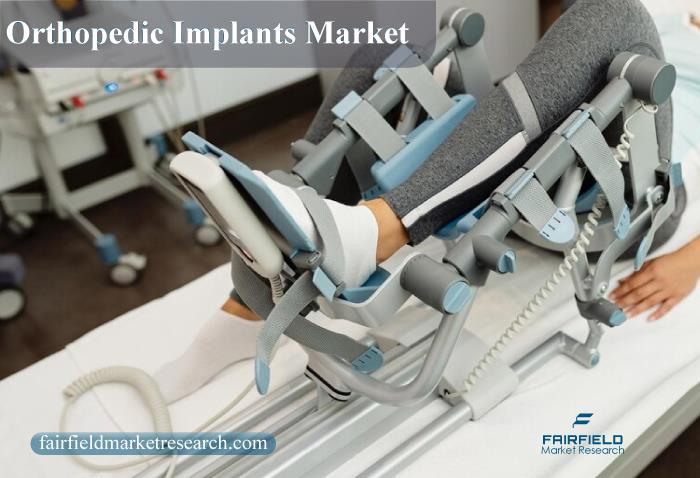Global orthopedic implants market is poised for substantial growth, with market size projected to soar from US$33.1 billion in 2022 to an estimated US$52.45 billion by the end of 2030. This growth trajectory reflects a robust compound annual growth rate (CAGR) of 6.8% during the forecast period of 2023 to 2030.

For More Industry Insights Read:
https://www.fairfieldmarketresearch.com/report/orthopedic-implants-market
Key Trends
Driving Market Expansion
Ageing Population Boosts Demand: With the world's population ageing, there is a corresponding increase in orthopedic issues such as osteoarthritis and fractures. This demographic trend is a significant driver of market growth as the demand for orthopedic implants, including joint replacements and trauma fixation devices, rises.
Lifestyle Changes Impact Orthopedic Health: Modern lifestyles characterized by reduced physical activity contribute to musculoskeletal problems, further fuelling the demand for orthopedic interventions. Additionally, as life expectancy increases, age-related orthopedic conditions become more prevalent, propelling market growth.
Rise in Sports Injuries: The growing participation in sports and physical activities has led to a surge in sports-related injuries such as fractures and ligament tears. Consequently, there is an increased demand for orthopedic implants for surgical repair and reconstruction, particularly among athletes and active individuals.
Market Dynamics
Regulatory Challenges and Government Restrictions: Strict regulations governing orthopedic implants pose challenges for market players, requiring substantial resources and time for compliance. Changes in regulatory requirements can impact product approvals and innovation speed, necessitating ongoing adaptation to evolving landscapes.
Limited Access to Advanced Healthcare: Inadequate healthcare infrastructure and economic disparities may hinder orthopedic treatments, reducing the demand for implants. Addressing these issues is crucial for ensuring equitable access to orthopedic care worldwide.
Regional Analysis
North America Leads the Pack: The North American region dominates the orthopedic implants market, driven by advanced healthcare infrastructure and a growing elderly population. Despite pricing pressures and reimbursement challenges, robust research and development activities contribute to market expansion.
Asia Pacific Emerges as a Key Player: With a growing ageing population and increasing healthcare infrastructure, Asia Pacific presents significant opportunities for market growth. Government initiatives aimed at improving healthcare access and affordability further fuel expansion, despite regulatory and reimbursement challenges.
Leading Players in the Orthopedic Implants Space
The global orthopedic implants market is highly competitive, with leading companies continuously innovating and expanding their global presence through strategic acquisitions and partnerships. Key players include:
Zimmer Biomet
Stryker
Smith & Nephew
BioTek
Corin Group
Conmed Corporation
Globus Medical
Medtronic
Braun Melsungen AG
DePuy Synthes
NuVasive
DJO Global
Arthrex
Wright Medical Group
Acumed
